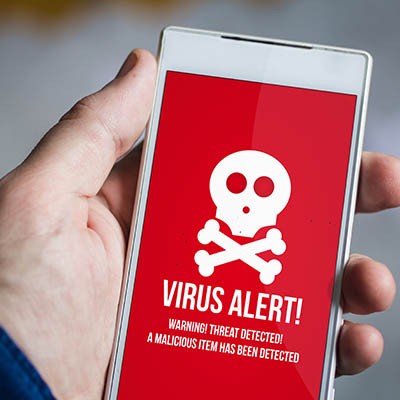Data loss can have lasting effects upon your business, usually measured in lost productivity and capital. In other words, data loss is often measured by the cost required to retrieve, restore, and/or repair its effects. Of course, this is only the beginning of how data loss can impact your operations.
Telesys Voice and Data Blog
Spam is a tricky subject to talk about, as it seems everyone has a different definition for it. Yet, most have come to the conclusion that spam is a bad thing. For today’s Tech Term, we want to delve deep into the different kinds of spam out there, as well as theorize where the term even came from.
This guide was created so that business owners, office managers, and IT departments can provide it as an educational resource to showcase some of the most basic IT security practices that can be implemented in your workplace. We recommend printing this out and handing it out to your staff for maximum results.
Ransomware doesn’t discriminate with its targets, as the city of Atlanta, Georgia now knows so painfully well. The city became the target of a ransomware attack that crippled many of its critical system workflows. The municipal government suffered from one of the most advanced and sustained attacks in recent memory.
It’s been about a year and a half since the Meltdown and Spectre exploits became publicly known. While patches and updates were administered to reduce their threat, they continue to linger on in a less serious capacity. Of course, this doesn’t mean that the threat has entirely been neutered--you still want to know what these threats do and whether or not you’re safe from them.
You might hear the term “zero-day” when discussing security threats, but do you know what they actually are? A zero-day threat is arguably one of the most devastating and dangerous security issues your business could face, and if you’re not prepared, they could be the end of it.
Chances are you have a Google account, whether it’s for business or personal use. It’s more accessible today than ever before and provides a solid way to gain access to several important features and accounts. Considering how much can be done with a Google account, users forget that they can put their security and personal data at risk. Here are some ways that your Google account is at risk, as well as what you can do to fix it.
Unfortunately, one of the most effective defenses against phishing attacks has suddenly become a lot less dependable. This means that you and your users must be ready to catch these attempts instead. Here, we’ll review a few new attacks that can be included in a phishing attempt, and how you and your users can better identify them for yourselves.
Let me ask you a question… let’s say that you’re about one year from your projected retirement, when a ransomware attack encrypts all of your files. What do you do? Pack it in and retire early? This is precisely the situation that the practitioners of Brookside ENT & Hearing Services of Battle Creek, Michigan, have found themselves in - and it may not be over yet.
Imagine a world where there wasn’t a singular dishonest being. Passwords would simply vanish from our everyday lives, as we would not be paranoid of a breach or other forms of cybercriminal activity. The harsh reality is this will never become reality. Even worse, the cybercriminals don’t just skim for lack of passwords. Instead, the dishonest criminal goes even further; they take advantage of common or recurring passwords. So how do you know if your password practices are leaving you vulnerable? Google is here to help.
We all know how important it is to protect your desktop and laptop computers from malicious threats. Installing antivirus and security software is one of the first steps you take when you get a new computer, and for good reason. An unprotected device is at great risk. With that said, a lot of users don’t think about the threats that target their most-used devices, their smartphones.
The holidays are a time filled with good food, visits from dear friends and family, and exchanging gifts with those you care about. However, to keep the season bright and merry, you need to be a little cautious during your next gift exchange, as many gifts can present some unexpected risks to your recipient’s security. Be mindful if you see the following items on someone’s wish list.
If your business were to be struck by a Distributed Denial of Services (DDoS) attack, would it be able to recover in a timely manner? Do you have measures put into place to keep them from hampering your operations? While most organizations claim to have sufficient protection against these dangerous attacks, over half of them have simply proven to be ineffective against DDoS.
Business security is a common issue for many small organizations with limited budgets, but it doesn’t have to be an issue. We’re here to help you master the seemingly endless threats and security problems that major vulnerabilities present to the small business environment, and it all starts out by understanding how even basic security solutions protect your organization.
Without competition, there would not be businesses. However, this competition needs to be fair in order for small businesses to embrace new opportunities that arise. A U.S. bill that allows for both of these goals has passed in the House of Representatives and will be voted on in the Senate.
You’re lucky to go a month without seeing news of some devastating data breach. With more businesses gearing up for the worst, what are you doing to protect your organization’s intellectual property and sensitive data? You can start by implementing a new type of authentication system that’s much more secure than your current security strategy--two-factor authentication.
Physical security is more or less what it sounds like: security intended to protect the physical infrastructure that houses your business and your critical data. Many of the pieces of physical security will seem very familiar, even if you didn’t know the right terms for them.
You might be surprised by how many of your organization’s security issues originate from within. A major contributor is user error, which can lead to some pretty severe problems reaching from your data security, to your workflow, all the way to the continuation of your business itself.
If you run a small business, you might consider yourself a small target of hacking attacks. It might make sense to think of it in this way, but this actually is not advisable to think of it in this way. According to a recent survey by CNBC and SurveyMonkey, only two percent of small businesses see cyber attacks as anything worth worrying about. This leads us to the next question… are you one of them?
Data security, always an important topic, has been made even more urgent by the Equifax data breach and the fact that 143 million users had their personal information stolen after entrusting it (or not) to Equifax. You need to consider what would happen if your business were on the receiving end of a data breach, and prepare to handle this truly unpleasant circumstance.
Mobile? Grab this Article!
Tag Cloud




















